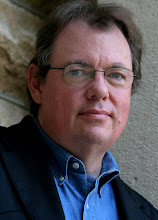Extra money is always helpful
Here's a lead from today's New York Times that I had to read three times.
WASHINGTON — The chief executives of the nine largest banks in the United States trooped into a gilded conference room at the Treasury Department at 3 p.m. Monday. To their astonishment, they were each handed a one-page document that said they agreed to sell shares to the government, then Treasury Secretary Henry M. Paulson Jr. said they must sign it before they left.
There was no press at this invitation-only meeting, but Mark Landler and Eric Dash did an admirable job of recreating it from interviews. It was, in short, a $250 billion offer the banks couldn't refuse.
Even as they insisted that they did not need the money, bankers recognized that the extra capital could be helpful if the economy became shakier. Besides, many of these banks’ biggest businesses are tied to the stock and credit markets; the quicker they improve, the better their results.
This is just obscene.
WASHINGTON — The chief executives of the nine largest banks in the United States trooped into a gilded conference room at the Treasury Department at 3 p.m. Monday. To their astonishment, they were each handed a one-page document that said they agreed to sell shares to the government, then Treasury Secretary Henry M. Paulson Jr. said they must sign it before they left.
There was no press at this invitation-only meeting, but Mark Landler and Eric Dash did an admirable job of recreating it from interviews. It was, in short, a $250 billion offer the banks couldn't refuse.
Even as they insisted that they did not need the money, bankers recognized that the extra capital could be helpful if the economy became shakier. Besides, many of these banks’ biggest businesses are tied to the stock and credit markets; the quicker they improve, the better their results.
This is just obscene.


<< Home